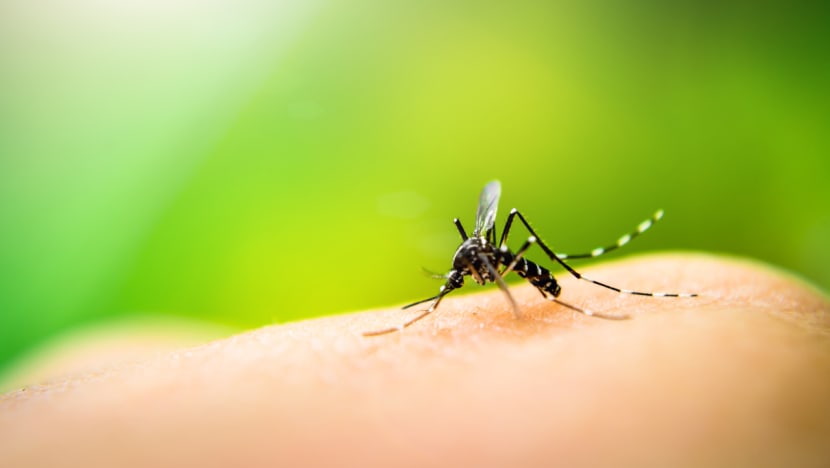Are you a mosquito magnet? It could be the smell of your skin
A new study found that those who produce high levels of carboxylic acids were more attractive to mosquitoes.

A mosquito sucking blood from human skin. (Photo: iStock)
SINGAPORE: Ever wondered why some people seem to attract mosquitoes while others get off without bites?
The answer might lie in the smell of your skin, according to a paper published on Tuesday (Oct 18) in the scientific journal Cell.
Every person has a unique scent profile made up of different chemical compounds and researchers found that those who produce high levels of carboxylic acids were more attractive to mosquitoes.
Carboxylic acids refer to organic acids such as amino acids and fatty acids, which are produced in human sebum - an oily and slightly waxy substance found on the skin. This is used to protect the skin, keeping it moisturised.
This was discovered through an experiment designed by the researchers, where different people’s scents were pitted against each other.
A total of 64 volunteers participated in the study and were asked to wear nylon stockings around their forearms so that researchers could collect their skin odour samples.
Over several months, researchers placed two different stockings into a closed container housing female Aedes aegypti mosquitoes, to see which stocking would attract more mosquitoes.
Aedes aegypti mosquitoes spread diseases such as dengue and Zika.
A round-robin tournament revealed findings that suggest that some people are more attractive than others to mosquitoes. The biggest mosquito magnet had an attractiveness score of more than 100 times greater than that of the two least attractive subjects.
An analysis of the subjects’ scent profiles showed that the most attractive subjects tend to produce greater levels of carboxylic acids on their skin while the least attractive subjects produced much less.
The study also found that those who are attractive to mosquitoes will most likely remain attractive. This is because most viable skin bacteria reside in the pores, where they are protected from external factors, such as hygiene habits and seasonal weather changes.
Researchers said findings from the study could have important public health implications, since it is estimated that in disease-endemic areas, a small fraction of humans is more frequently targeted. These individuals serve as a reservoir of pathogens.
"Understanding what makes someone a 'mosquito magnet' will suggest ways to rationally design interventions such as skin microbiota manipulation to make people less attractive to mosquitoes," said the authors of the study.
'We propose that the ability to predict which individuals in a community are high attractors would allow for more effective deployment of resources to combat the spread of mosquito-borne pathogens."
















